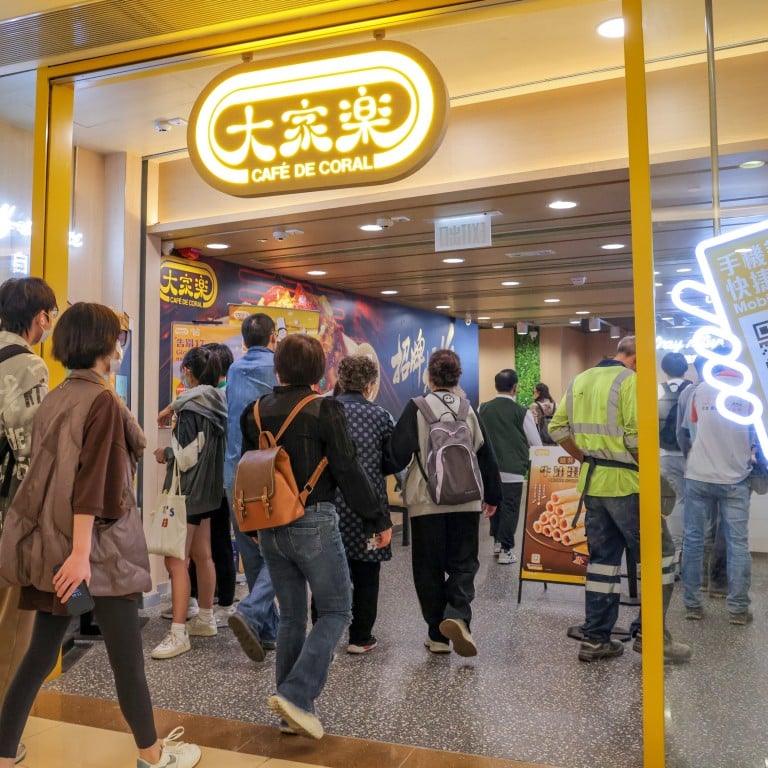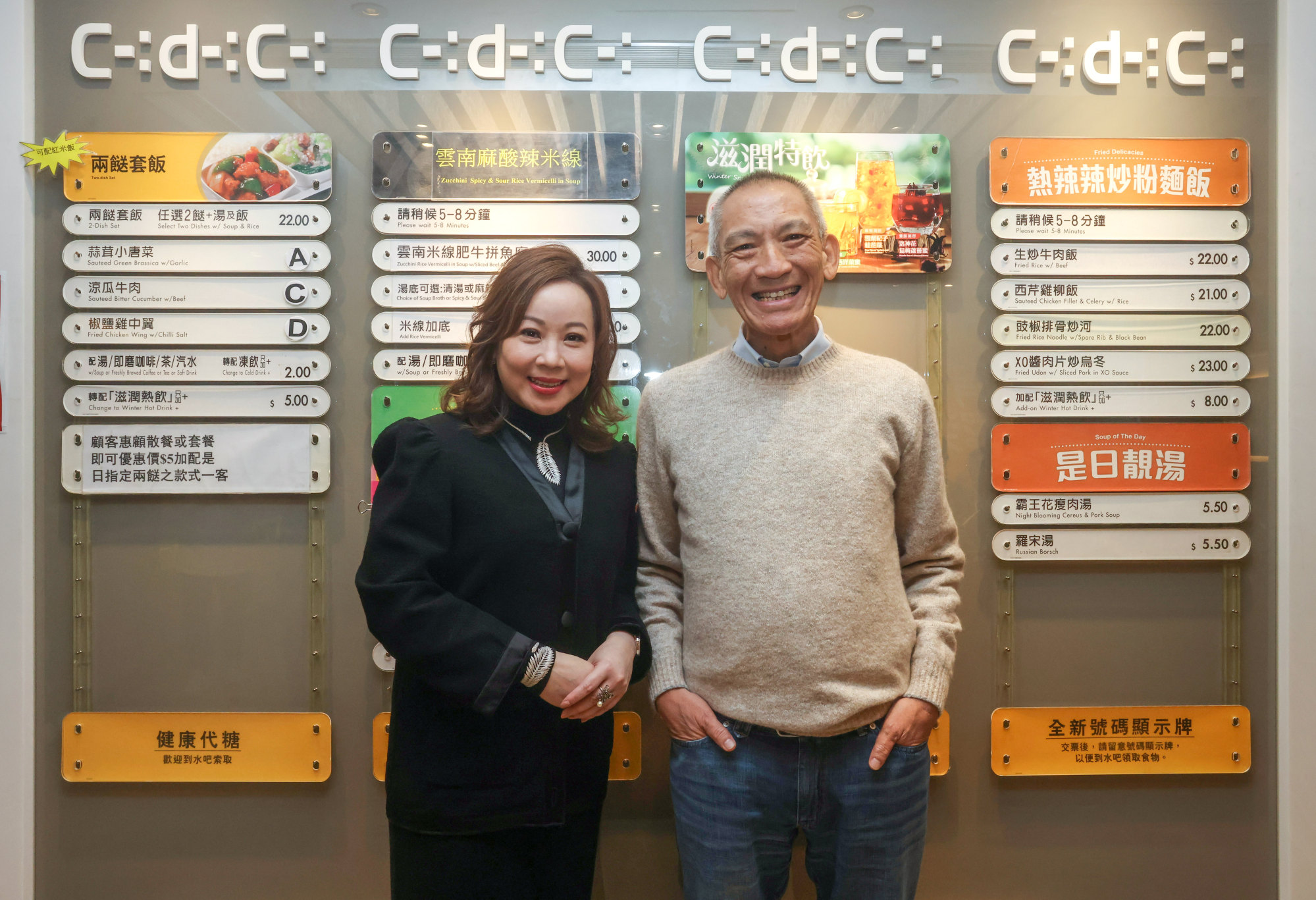
Hong Kong restaurant group Cafe de Coral’s incoming CEO sets sights on HK$590 million profit record, aims to establish chain as ‘people’s canteen’
- Piony Leung, who will take the helm in April, plans to increase the number of outlets in mainland China by two-thirds
- Industry faces additional challenges as more Hongkongers head north for leisure, she says
Piony Leung Ho-ting, who will take the helm in April as Cafe de Coral’s first woman CEO, outlined her goals for the Hong Kong-listed group, saying she planned to increase the number of outlets in mainland China by two-thirds from 168 to 280 in about three years, with an annual investment of more than HK$100 million.
She also noted there were additional challenges as a result of more Hongkongers heading north for leisure and an industry-wide labour crunch.
“In two years, we hope to restore the group’s profits to the record-breaking level of the 2018-19 financial year at more than HK$590 million as we aim to achieve sustainable growth and profit,” she said in an interview with the Post. “This is not easy but is still possible.”

With more than 25 years of experience in retail and fast-moving consumer goods industries across the Asia-Pacific region, Leung joined the group as its Hong Kong managing director in 2019. She will succeed Peter Lo Tak-shing to become the next CEO.
The group’s chairman Sunny Lo Hoi-kwong said Leung’s appointment signalled the chain’s transition from a family-run model to a sustainable management approach led by professionals and aimed at achieving long-term development and growth.
Home-grown Hong Kong: Cafe de Coral – feeding the working class
“Under this new model, family members will continue to serve as decision-makers on the board of directors, while the daily operations of the company are being entrusted to an experienced professional management team,” he said.
“The combined efforts will guide the company to the next level of development.”
The group, which had 383 outlets in Hong Kong as of September last year, posted a sharp rebound in profits for the six-month period ending on September 30, recording an increase of 84.4 per cent to HK$200.6 million from the year before.

Revenue from its mainland operations rose by 13.2 per cent to HK$774.8 million year on year.
The figures are in stark contrast to many eateries in Hong Kong that are still facing losses in the wake of the trend of residents heading north for leisure.
The Cafe de Coral group also includes The Spaghetti House, Oliver’s Super Sandwiches, Shanghai Lao Lao and Super Super Congee & Noodles.
Leung said the group would remain focused on developing its core brand Cafe de Coral in the Greater Bay Area.
The bay area is Beijing’s scheme to link Hong Kong, Macau and nine cities in Guangdong province to form an economic powerhouse by 2035.
“We aspire to be number one in each segment of the catering industry, no matter if it is fast food, casual dining or institutional catering that we have been doing,” Leung said.
She added that the company had no intention to expand overseas.
Hongkongers flock to Shenzhen where their dollar takes them further
“We aim to turn Cafe de Coral into a people’s canteen for everyone in the bay area, a kind of neighbourhood cafe that people will think of as a no-brainer top choice for dining,” Leung said.
“Our fast-food restaurants should become a place of convenience, with affordable prices and quality to bring people of all walks of life an endearing atmosphere as well as [satisfy their food cravings].”
Lo said: “We are also a place for human bonding as our staff treat our customers like family so they will always come back.”
But Leung admitted that the company faced difficulties, including the impact of Hongkongers heading to mainland China.
“This trend of people going north has definitely affected our business, especially the outlets in the residential areas in the Northern district,” she said.
Bulk buying megastores in Shenzhen may lure even more Hongkongers over border
“But we will try to create a mix of sophisticated products such as lamb stew, hotpot, steamed fish and festive dishes to spice up demand and attract diners. The rebound in inbound tourists could also offset the loss in local diners.”
Leung added the company aimed to reduce waste of resources and food ingredients to improve productivity amid inflation.
She highlighted out that the group, in line with others in the industry, was also grappling with a labour shortage.
“Our strategy is to recruit and retain by using automation. We are actively hiring people while at the same time offering different training programmes for our staff to climb up our career ladder,” Leung said.
“The coming year will be full of challenges for the catering industry in the wake of the trend of people going north and the overall economic downturn. We’ll maintain a wait-and-see attitude about local consumption.”

